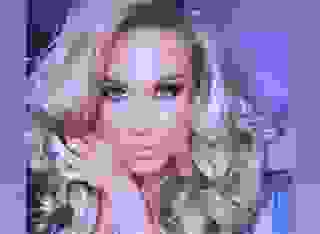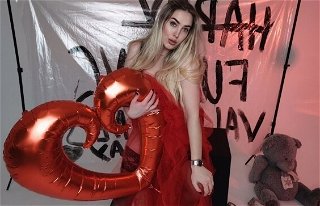Note: You can change font size, font face, and turn on dark mode by clicking the "A" icon tab in the Story Info Box.
You can temporarily switch back to a Classic Literotica® experience during our ongoing public Beta testing. Please consider leaving feedback on issues you experience or suggest improvements.
Click here"Ruth, what are you saying?"
"It's not just mumbo-jumbo and fairytales, Jo. There's more behind it than that... I know you've never wanted to tell me what happened that night at Causeway, but I think you saw a little bit of it then, didn't you?"
I nodded slowly. "There were... some things I didn't tell you."
"We didn't know what we were getting into. Please believe me when I tell you it's better if you don't know. Jo, please promise me you'll do your best to forget the stuff we worked on together. Don't try to dig it up."
"Ruth, what are you saying?"
"I'm leaving Vesey. I have to go. It's better for everyone."
"But Ruth, you've only got two months to go. At least finish your exams, get your degree."
She shook her head, laughing, but the laughter didn't reach her eyes. "That doesn't matter any more. Not for me. But I want you to knock 'em dead. For my sake."
"Oh, Ruth. You're one in a million. I can't... you could have done anything, been anything. Why did it have to be this?"
"I think... I think I knew there must have been a reason why these things were forbidden. That's why I pursued them." She gave me a sad smile. "Because I fell in love with the forbidden, years ago, before I ever heard of the Pale Lady and the Silent King. I've always wanted what I can't have."
"I don't understand."
"Since I met you, Jo." There was no mistaking her meaning. "And now I've said it, you may send me away. But I needed to tell you."
My mouth was dry. "Ruth, I... back at Causeway, I didn't know if it was you. Under the veils. I thought it was you, and I kissed... through the last veil."
"Oh, God, Jo." She was standing very close to me.
"Ruth, who was it that night, under the veils? Was it you?"
"Don't ask me that, Jo. Just know, it's me here tonight. No veils, just me and... nobody else. You don't want to know what it took to arrange that, but it's done. Jo, if I'd known... I kept it a secret so long, never thought you'd feel that way. Thought the only way to hold your interest was to impress you with my work."
She looked up at me, questioning, and I kissed her. No veils. On the lips. She hugged me to her, fierce as a bear, and kissed me back. Someone was shaking, sobbing, and I realized it was me... no, it was both of us.
"Ruth, I love you, I would have loved you..."
I was about to say, I would have loved you without any of this. But was that true? Wasn't her brilliance, even her obsession, part of what I had fallen in love with?
"Hush. Just us. Just tonight. What's done is done. This is all I can give you, but I give it with my whole heart." She kissed me again, and after that there were very few words.
I remember us like fire, twisting and devouring one another in the dark, writhing images that still sizzle and burn behind my eyes in afterglow. I was voracious and tender by turns and she gave herself to me wholly, a tangle of legs and fingers and lips and tongues. I thought myself worldly, but she taught me otherwise, bringing me to voiceless begging until I snarled and grabbed her by the back of the neck and required her to complete what she had started.
Afterwards, my rougher urges sated, I held her to me, stroking her all over, marveling in how snugly our bodies fitted together. Whatever magic the world might hold, this was enough for me: the ley-lines of her body, the cadences of her breath, the pulse of her heart, all governed by two sacred names: ours. And when she too was spent we collapsed together, the last of the walls between us vanished.
But when I woke, Ruth was gone. On my writing-desk she'd left a brief note: I love you. Please don't try to follow. — R.
She'd been seen at the railway station that morning, wearing a yellow scarf, headed for Boston. Her room was neat and empty with nothing left to show she'd ever lived there, save a great pile of paper-ash in the fireplace and a letter addressed to her father.
The letter was brief and to the point: she'd fallen in love with a young man who didn't reciprocate her affections. She had decided to end it all, with apologies to her father and friends. From Alpha to Omega, the whole thing was a lie — except perhaps for the apologies — but it was enough to fool everybody but myself.
Poor Monty was shattered. For all his obsession with his own work, he had loved Ruth dearly, and to lose her to suicide — as he thought — was a hard thing to bear. I considered telling him the truth, but what good would it do? Ruth was gone, that much was certain; I felt sure that she had spun him the kindest story she could conceive of. Debunking it would not do him any favors. Besides, the memory of my oath of secrecy still sat uncomfortably in my mind.
I did my best to console him with reminiscences of Ruth: her intelligence, her kind nature, her passion for her father's work. (Of her disagreements with his conclusions, I said nothing.) I told him that he was to keep in touch, and that we would always be connected by our memory of Ruth.
But I was soon to be distracted from all this by other matters. The night before the last of my final exams, I received an urgent summons to Boston: Mama was dying. I rushed home, just in time for a few words with her, and then she slipped away; at least it was painless at the end.
At her funeral, an aunt asked me what I intended to do once I had graduated from Vesey, and I realized I had no answer to give. All my plans had been tangled up with Ruth, and I had not made new ones to replace them.
I occupied myself for a while in replying to the hundreds of letters of condolence that had arrived for Mama; every time the post came, I half-expected to see an envelope in Ruth's familiar hand. After that I assisted Papa in managing some of the details of her many bequests. Still my future felt directionless and empty; it was all I could do not to laugh when a cousin suggested I should think about marrying.
In the end I made up my mind to travel. Perhaps a change of scene would do me good; although I found it hard to imagine that anything could ever mean as much to me as Ruth and Mama had done, I knew that others before me had moved past bereavement, and I hoped that after a year abroad things might look different.
I made arrangements for a long tour of Europe. All the grand names I'd heard in childhood stretched before me now: Athens, Rome, London, Vienna, the Alps, Prague, Berlin... with money behind me, there was no obstacle to my seeing them all. Now and then when I looked at the map, I felt a little twinge, remembering another time when I had made plans with Ruth. But I stayed to the road well-travelled and made no plans to visit that little dead-end village in Hungary, or the shrines to certain obscure saints that dotted the backwoods of Germany and Poland.
Since Papa was in the shipping business, I consulted him for advice on traveling. Much of it I could have figured out for myself, however with him still in mourning for Mama, I saw no harm in keeping his mind occupied. It was after one such visit, a week before my departure, that I had an unexpected encounter with a grizzled old sailor sitting in the sun outside Papa's offices.
"Hello, Miss Hart! Top of the morning to you!"
"Hello there! How d'you do... John, is it?"
"That it is, miss. I hear you's going abroad!"
"That I am! To Liverpool first, and then on to the Continent."
"Will you be meeting up with your young friend, miss?"
"My... who?"
"The young lady that was always with you? I remember her from t' Seaman's Friend, she was always about, asking the old fellas for stories."
"Ruth? No... I'm sorry, John. Ruth's no longer with us. She passed in April."
"Dead? Oh, Miss Hart, I'm terribly sorry! So young and such a good heart, she had. It must have been somebody else, then. Saw her boarding one of the old steamers, round about the start of May. Thought it must be Miss Ruth, looked so much like her. But I'm terrible sorry."
I told him to think nothing of it, and made my exit. At the back of my mind I had always thought that Ruth was still out there in the world somewhere, but it was disconcerting to be reminded of it... and that she might have gone in the same direction I was headed. The thought continued to prey on me until the day I stepped onto the "Carinthia", bound for Liverpool.
Then and there, I resolved to put Ruth out of my mind. Even if I were to look for her, how could I possibly find her, a nondescript needle in a haystack the size of Europe? It was hopeless, not worth thinking about.
Papa had deputized two of the household servants to travel with me, and I was glad of Mr and Mrs Cotton's company. They distracted me from the thoughts that still visited me when I was alone, and they knew better than to talk about Ruth or Mama. There was much else aboard the "Carinthia" to keep me occupied: I played tennis, I conversed with the other passengers, and above all I was kept busy dealing with a veritable army of well-dressed young men. I couldn't tell which ones had honorable intentions and which were attracted by the lure of Papa's wealth. Fortunately, it made no difference, since I had no romantic interest in any of them. At first the attention was entertaining; after three days it grew wearying, and during a patch of rough weather I retreated to the ship's library for a spell of peace and quiet.
There, while looking for something to read, I happened across a copy of "Salomé". I had more sense than to open it; even so, it suggested another train of thought. Perhaps there was a way to find Ruth after all...
I did my best to put those thoughts aside; I departed the library and occupied myself with other pursuits for the remainder of the voyage. Once we disembarked at Liverpool there was plenty more to divert my attention: the sights of London, the ferry to Calais, and then — after stopping to lay a wreath at the Argonne — all the great cities of Europe. I attended the opera, I collected postcards of landmarks, I burdened the Cottons down with armfuls of shopping.
Still my mind worked, provoked now and then by suggestive experiences along the way. In the British Museum a broken statue of Harpocrates, the old Greek god of silence; in Paris a heptatych by Alfonse Mucha, depicting a series of veiled women. There were few overt clues, yet all across Europe I encountered countless hints. News of a novel recently suppressed for obscenity; a hostile and bewildered review of a play based on Machen's supernatural works; even a poster for cigarettes, drawn in a very particular style that I had come to recognize.
In the end, Ruth had found what she sought through art; well, perhaps I could find Ruth the same way. I began to cultivate the company of artists, buying a landscape here, commissioning a minor work there, probing — ever so carefully — for information. Gradually I found it, a trail of whispers and allusions, each clue as tenuous and insubstantial as a single strand of spider-web. I spent months uncovering the edges of that web, and when at last I had enough I took hold of those strands and went in search of the center.
Nearly a year after arriving in Europe, I returned at last to Paris. On the seventeenth of July I gave the Cottons the slip and made my way to a dingy and unremarkable-looking theater at an address I will not name. The ticket-seller tried to turn me away — "Mademoiselle, we have no seats left", which I thought unlikely to be true. When I greased his palm and told him that my friend Ruth Summers had asked me to meet there, he waved me in.
Following his instructions, I navigated a labyrinth of narrow corridors and a spiral staircase, and found myself at last in the theater. It was tiny — the stage was at floor level and would easily have fit inside the bedroom at my hotel — and I was the only person there. Not even an usher was to be seen. But I had no doubt that I had come to the right place. I sat in the front row in front of a red velvet curtain and made myself comfortable as I waited.
After perhaps ten minutes an old lady came shuffling across the stage, sweeping as she went, then returned to place a series of candles at the foot of it. She said nothing to me, merely vanished back into the wings, and I continued to wait. The candles had a strong smell to them, bitter but not unpleasant. I was in no hurry.
Eventually the ceiling lights dimmed. From somewhere behind the stage a crackly gramophone began to play a jazz number. Then the curtain opened and she was in front of me, draped all in gray as I'd known she would be, dancing in a rhythm that slid in between and underneath the notes of the music.
She spoke over the jazz. I cannot remember whether it was in English or in French, but I remember the sense of it: "I am the gray veil. I am Hide-Away, Never-Found, Lost-Forever."
Phantasms of Peter, trodden face-down into the mud, buried altogether and planted over by farmers. Of Ruth and myself, afraid to speak what was in our hearts until much too late.
Then the grey veil was gone, and another took its place. Newspapers, pasted together, already torn and ragged. "I am the paper veil. I am Scandal, Ridicule, Disgrace." I made out some of the headlines: "WILDE CONVICTED, SENTENCED TO TWO YEARS HARD LABOR", "BANKER SWINDLES CLIENTS, SHOOTS SELF", "ARBUCKLE IMPLICATED IN YOUNG WOMAN'S DEATH."
Nightmares of exposure: was it possible that Ruth had left hints of her love for me in some forgotten journal? If her father were to find them, would he seek to disgrace me for leading his daughter astray? I shook my head, trying to ignore the visions. I was here to find Ruth, not to frighten myself with what-ifs.
The dance became faster now, twisting, contorting. The papers began to fall apart. There was something rough and noisy underneath, metallic; as it moved it snagged and ripped and chewed the papers, emerging through the shreds. Coins, drilled through and linked together by wires. "I am the veil of gold and silver and iron, thirty coins times thirty." Her voice sounded so much like Ruth. "I am Poverty, In-Debt, Shackles."
I had spent money like water this past year, secure in the comfort of my father's deep pockets. But how solid was his empire? I had heard whispers that some of the elite were beginning to pull their money out of Wall Street for fear that it was a house built on sand... and if the rumors spread and the fear grew, what would that mean for us?
"Ruth. If you're there, please say so." I would go anywhere with Ruth. I would live penniless with Ruth, and count myself blessed.
The wires were giving way under the weight of the coins, loops coming open, bindings falling apart. Coins fell away, clattering on the floor, one by one and then faster until the sound blended into a racket of metal on metal, and the veil was gone.
Shimmering satin and gemstones, red and green and blue. But the satin was old and perished, the gems obvious fakes. "I am the veil of ruin." So very like Ruth's voice. "I am Skin-Deep, Harlot, Once-Was."
I had my mother's good looks, and some of her tricks of charm; in my time they had drawn many men to me... and Ruth? But could I hold her fascination when they began to fade, as time dictated they must? At the end of it all, would she regret wasting her life on an infatuation with me, unable to match her intellect and her gentle nature? Did I deserve her at all?
No, I told myself, there was more. Whatever Ruth saw in me, it was not the glamour alone. Perhaps one day I would understand what it was.
Now it was the satin's turn to tear, pulling away in scalloped tatters under the weight of the stones and the strain of her movement. The form underneath pressed against the cloth; I thought it looked like Ruth's knees, slightly lumpy, comfortably familiar.
Wispy silk, layer upon layer, billowing out into a great cloud, light from behind silhouetting a dark shape in the middle. "I am the veil of mist. I am Infatuation, Weeps-In-The-Night, Wants-And-Consumes."
The cloud grew impossibly wide, seeming to engulf me. I thought of my own selfishness; Ruth had told me not to follow, and yet here I was against her wishes, driven more by my desire for her than by any thought of rescue — for how could I possibly think of saving her without even understanding the path she had taken?
"Ruth," I said, "I want you and I have been selfish in it. But there is room in our love for errors and forgiveness. Please."
And the cloud billowed further outwards, silk brushing my face as it passed, expanding into nothingness... underneath, a female figure, veiled now in impenetrable black.
"I am the black veil. I am Oblivion, Negation, Night-Without-End." She fell silent, stood still; the jazz had ceased some time earlier, without my noticing, and now there was only the hiss of the needle in its final groove.
I had been a fool to come here. If Ruth had been undone by these secrets, Ruth with all her acumen, what hope did I have? To go further was to court utter destruction.
I stood. She was so close to me that I could reach out and touch the black veil. But just as I touched, my perception changed, like a child looking at a trick-picture: there was no black veil at all, just a shadow created by clever lighting. Even as I understood this, an electric limelight came on overhead, and the shadow was gone.
"I am the yellow veil. I am all that was and all that is and all that will be. Behind me is the truth that never lives and never dies, the Magnum Innominandum."
"Ruth." I ran my fingers over the veil, trying to feel the shape of her face. "Ruth, I love you. Just tell me it's you."
She was silent.
"Ruth, please, answer me." But by now I understood there were rules to this, only one way the veil would surrender its secrets. Trying to ignore the rising feeling of dread in my chest, I took a fold of the yellow cloth in between thumb and forefinger, and began to pull...
As the veil began to fall, I felt an instinctive terror such as I had never encountered before. In a split-second — too late to arrest its fall — I turned my face away, averting my eyes as if I had met the very Gorgon.
"Josephine." She was just behind me, her voice calm.
"Ruth. Tell me you're Ruth."
"Josephine, look at me."
"Tell me you're Ruth!"
"Look at me, Josephine..."
I felt her moving, a touch on my shoulder... and I ran. Ran for the door, tumbled down the staircase, ran through that labyrinth. I am not Orpheus; I did not look back, and I did not stop until I was out in the sunlight.
- * * * *
Northern Sweden, 1928
"I have dreamed of her, every night since then. Just behind me, whispering my name, sounding so very much like Ruth. Even when I'm awake, I feel that presence sometimes, close behind my shoulder... I know I have only to turn around and I will see her face, and there will be no more secrets. And I am so very afraid. I daren't turn around. I can't even look in mirrors."
Josephine was breathing fast now. Karin held her tight until her breathing slowed again. "It is a long way from Paris to Norrkvarn. How come you here?"
"I couldn't stay in Paris, not with her following me. I took some money and a few clothes and I made for Lille. I thought I could shake her off. But I felt her presence there, everywhere, like a fish-hook in my soul. I thought of ending it all, taking morphine and drifting away, but I didn't know whether even that would be an escape. And then I remembered...
"Ruth had spoken of other myth-families. And I thought, if there is power in this one, why couldn't there be power in the others? Why couldn't there be something out there that could help me?
"I went to a priest. It seemed the obvious choice. He thought I was mad, but he listened under the seal of the confessional, and he agreed to exorcise me. But afterwards I still felt her there behind me. I don't know if it's because I didn't have faith in God. Maybe there's nothing there to have faith in. I don't know.








